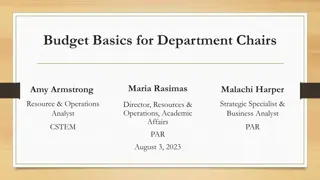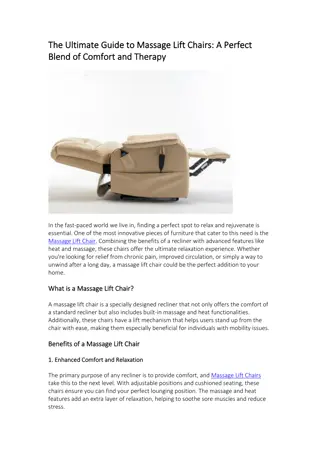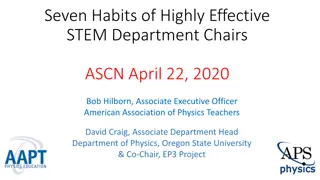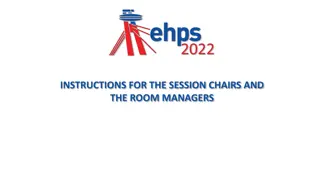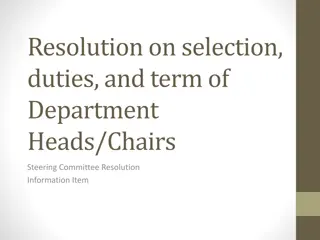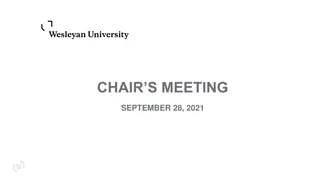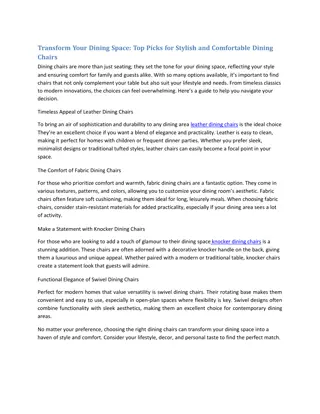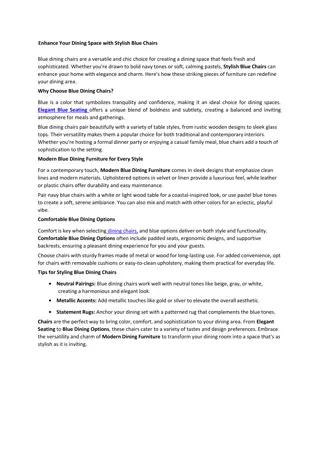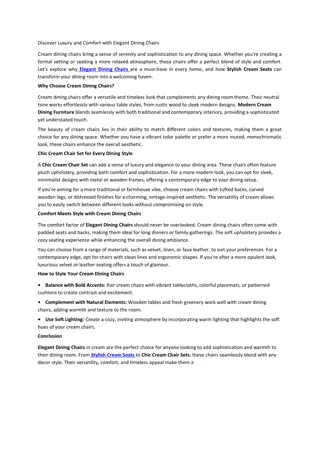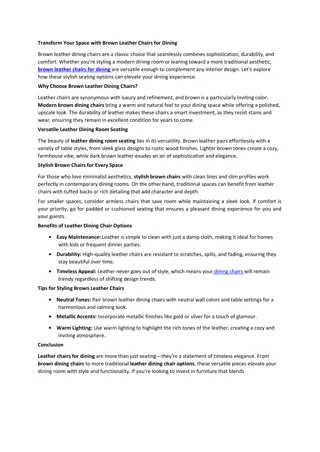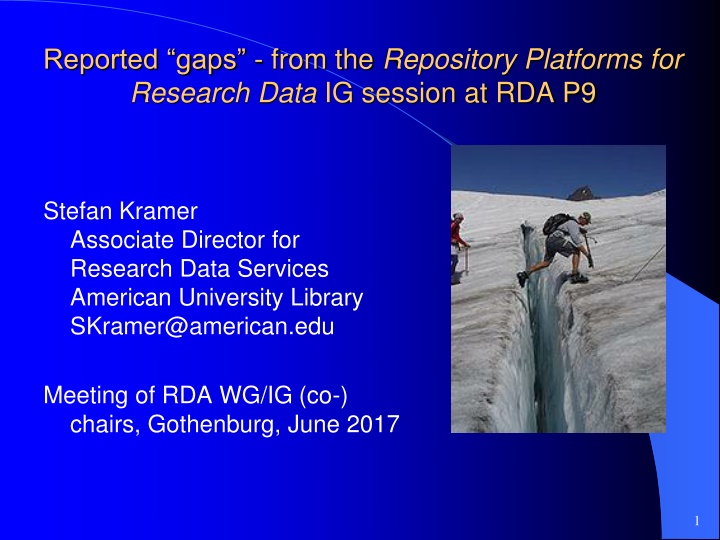
Uncovering Repository Gaps in Research Data Platforms from RDA P9 Session
Explore the reported gaps in research data repository platforms identified during the RDA P9 session. Presenters shared insights on addressing gaps such as costs, security, provenance capture, and integration with existing systems. Learn about the challenges and proposed solutions from various platforms like FEDORA, Figshare, and DSpace.
Download Presentation

Please find below an Image/Link to download the presentation.
The content on the website is provided AS IS for your information and personal use only. It may not be sold, licensed, or shared on other websites without obtaining consent from the author. If you encounter any issues during the download, it is possible that the publisher has removed the file from their server.
You are allowed to download the files provided on this website for personal or commercial use, subject to the condition that they are used lawfully. All files are the property of their respective owners.
The content on the website is provided AS IS for your information and personal use only. It may not be sold, licensed, or shared on other websites without obtaining consent from the author.
E N D
Presentation Transcript
Reported gaps - from the Repository Platforms for Research Data IG session at RDA P9 Stefan Kramer Associate Director for Research Data Services American University Library SKramer@american.edu Meeting of RDA WG/IG (co-) chairs, Gothenburg, June 2017 1
Presentations at RPRD IG session at P9 from which the following points are drawn: All can be downloaded from: https://www.rd-alliance.org/presentations- repository-platforms-research-data-ig-session-rda-9th-plenary-meeting 2
Presentations at RPRD IG session at P9 for which presenters were asked (in advance, or in the session if they didn t) to address: Where do you see the gap(s) from your experience with (your) research data repository platform(s), and what (if anything) are you planning to do to address them? 3
From Selection of FEDORA with VITAL as a Digital Repository Platform for Preserving Scientific Data Want to resolve these identified gaps in current repository: Would like a hosted service, with/for Reduced costs Security for public access Pre-ingest services Enhanced provenance capture Scheduled recurrent integrity verification Integration with organization s website and other services Data download user interface customization Batch transfer path to future systems 4
From Criteria and evaluation of research data repository platforms @ the University of Pretoria, South Africa For chosen product Figshare: 5
From OpARA - Establishing a multi-institution RD repository for TU Dresden and TU BA Freiberg For chosen product DSpace: Many things work out of the box, but many need (complex) adjustments Debugging with overlay code not always working properly Incorporating updated code from upstream more complex Complex Web Interface programming (XML-UI) hopefully improved by new DSpace7 Web-Interface Often poor code design/quality Metadata Handling Only plain metadata possible no hierarchy or complex metadata Limited metadata schema layout Both limitations fixed by introducing a JSON-based metadata format for complex metadata (large effort) 6
From OpARA - Establishing a multi-instituition RD repository (cont.) For chosen product DSpace: Submission forms very limited in form type and content due to metadata limitations Additional complex form types introduced for OpARA in conjunction with the JSON-metadata improvement Lack of support for long term archiving No support for content verification and preservation out-of-the-box Adverse layout of asset store (files of a single item are spread over different directories in the file system) OpARA modification of (Open Access) rights handling necessary to make clear when an item is publicly available (make sure no implicit Open Access is possible) 7
From OpARA - Establishing a multi-instituition RD repository (cont.) 8
From Win win situations in data repository RFTs, Or: how and why two Amsterdam universities chose figshare for institutions Situation before selection of Figshare: One criterion for data repository: data traffic must not go through USA 10
From Win win situations in data repository RFTs, Or: how and why two Amsterdam universities chose figshare (cont.) Used RPRD IG-created Matrix to assess Figshare 11
In summary Problems/gaps with research data repositories mentioned across these presentations: Cost reduction Interface improvements (Easier) customization Better support/documentation Integration of data repository with other systems 12
Thank you for your time & attention! Stefan Kramer SKramer@american.edu The End 13



